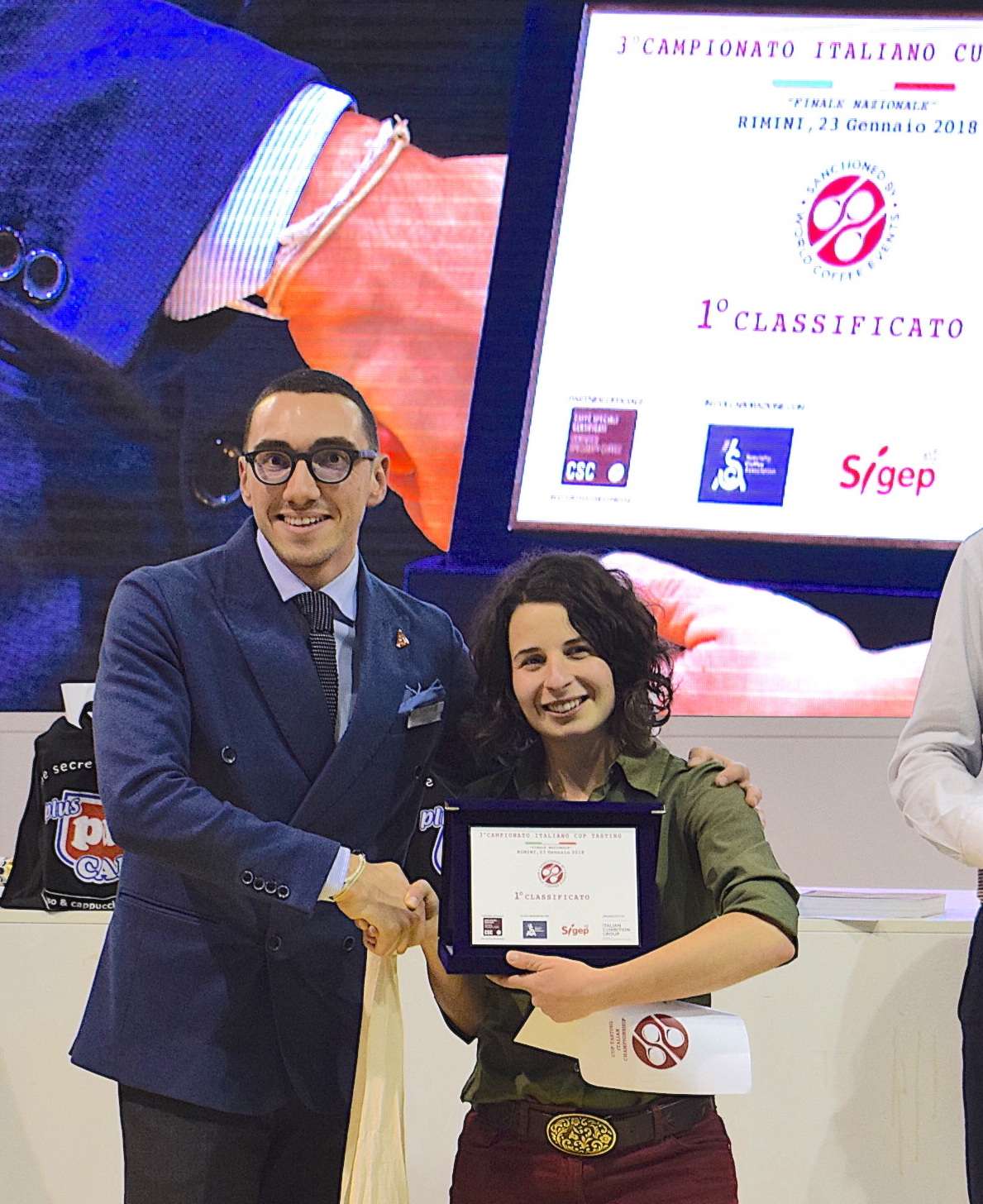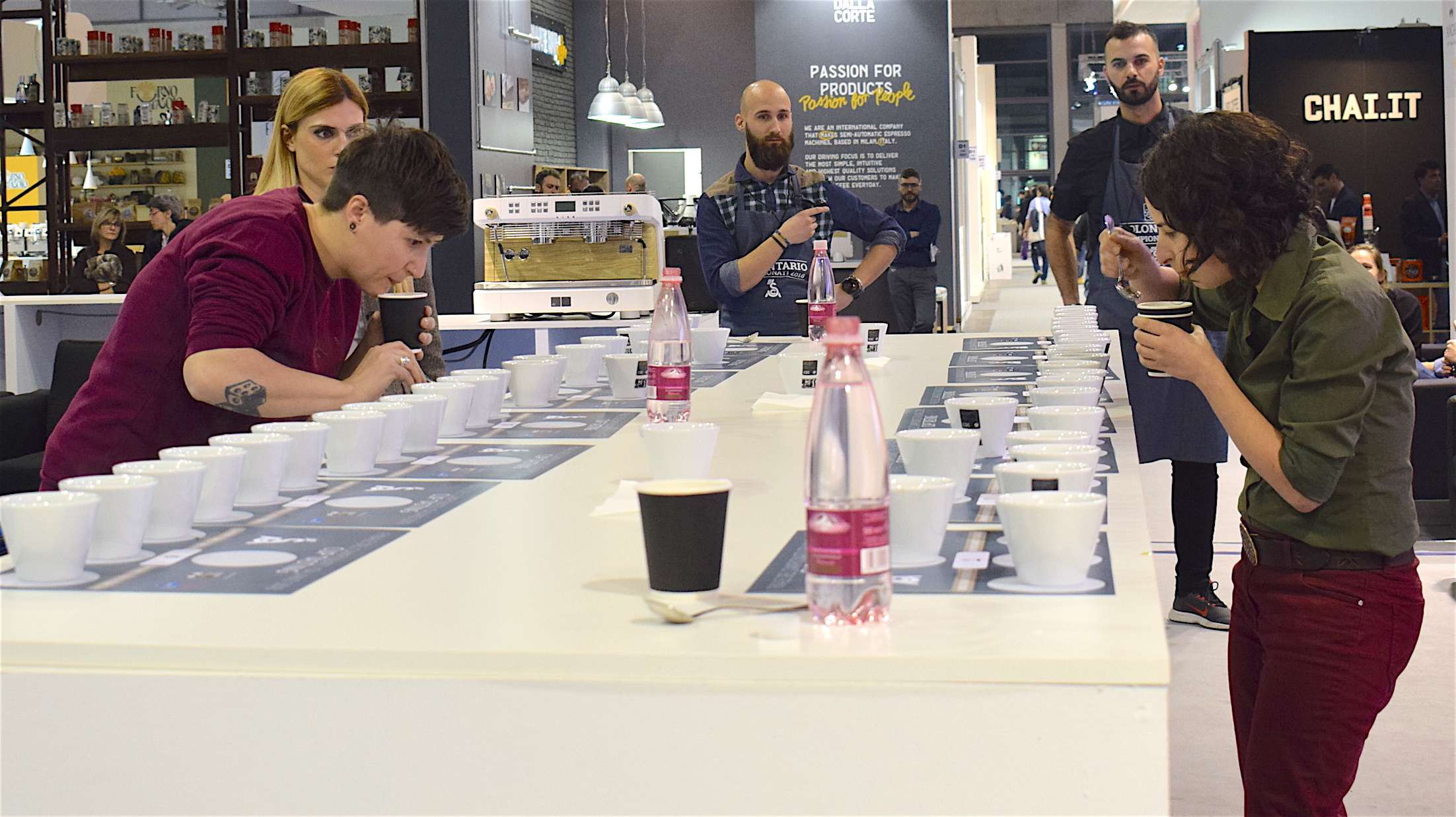Our Coffee expert and Trainer of the Espresso Academy, Helena Oliviero, is Italian Cup Tasting Champion and took part to the World Championship in Brazil!
On November 9th, the International Coffee Week ended in Belo Horizonte (Brazil). Helena Oliviero, trainer of our Espresso Academy and at the same time Italian champion in Cup Tasting 2018, took part to the World Cup Championship in Brazil. Participants from 40 countries competed for the title of World Champion in three different competition categories: Champion in World Coffee in Good Spirit, in World Latte Art or in World Brewers Cup.
Tasting expert
Helena is specialized in coffee tasting, a passion which has paid off in the past year with the highest recognition in this field: a degree as a Q Arabica grader and Q Robusta grader. She was very confident in this competition and quickly guessed the eight “different” samples from each triplet, an ability that delivers great benefits, especially at the World Championships.
“I am very happy that I was allowed to participate to this final. I thank the organization “Caffè Speciali Certificati” for their help with the preparations and support for the trip to Brazil. I hope that I can return the favor with a good result in the competition” says Helena Oliviero, who also likes to help others who want to get into this discipline with tips and tricks.
Helena, what is your method?
Step 1, she says, is to taste “absolutely everything” and then, if time and circumstances allow it, to try with filter coffee in competition simulations to prepare your senses to perceive any different flavor nuances. Then it is still important to find out the taste sensations that are most sensitive to learning to focus on. “There are people who can tell by the smell of the differences between the one and the other coffee, even if they are very delicate. Nevertheless, it’s also good to know that starting from this year it’s no longer possible to work only with the smell, but that it’s mandatory that at least two cups per triplet get tasted. When the coffee is in the mouth, you can focus on the senses, such as fullness or taste.
Which are your strengths?
I would recommend not staying too long with the bitterness, as this is a perception that becomes stronger when tasting and the rating of the individual cups gets less and less precise (or at least makes it more difficult). Personally, I find the estimation of the different types of acidity quite complex. It requires a great deal of concentration, while it’s easier for me to rely on the aftertaste that allows me to understand what the coffee wants to “tell” me: one cup tastes of oranges, the next more of limes, the third one like oranges … I kind of customize the coffee for myself. ”
The Cup Tasting Final
In a cup tasting competition, the individuals compete with eight cups of triplets: each cup must be identified by simple markings that distinguish them from the other two, for example in taste and smell. The winner is the one who can guess the most deviant cup in the shortest possible time: the right cups have a point on the bottom that appears when the judge at the end (maximum of eight minutes) turns the selected cups over.
Want to learn how to taste coffee?
Find out more about the Tasting and Cupping Courses at the Espresso Academy in Florence and also discover all our other courses for coffee lovers and experts!



